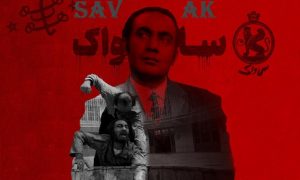After Mordad 28th coup, Muhammad Reza Pahlavi decided to strengthen the bases of his dictatorial government. The colonial government of England and the newly-emerged imperialism of America which possessed major interests in Iran considered preserving security and stabilization of Muhammad Reza Pahlavi’s dictatorship as a really essential issue. Consequently, they cooperated together to strengthen police and security forces of Iran and provided a special plan to organize the security organization of the country and created it based on a plan which had presented by America in. 1335.
The Iranian press announced the news of the beginning of the activity of this organization called the intelligent service and security organization of the country even before the passage of its rule in the national council and senate parliaments. Eventually, this organization formally started its activities in 1336 S.H.
SAVAK was in fact the product of special circumstances of the country. During the early years of 28th of Mordad coup, the military governorship of Tehran was in charge of security organization. However, the lack of the possibility of the permanent existence of military governorship in one or more cities made the people in charge to seek a remedy which ended in creation of SAVAK whose first core of the organization were the very cades and military governorship personnel and forces who had experiences in repressing people and fighters.
After, Mordad 18th coup, some heads of Toudeh party of Iran escaped from the country and few were hanged and many of them expressed being regretted and even served for SAVAK. Nevertheless, the combatant clergymen played an inevitable role in directing people’s fighting against British Colonialism and leading the movement of nationalizing oil industry. The clergymen such as Ayatollah Sayyed Abul Qasem Kashani as the leader of the movement and Ayatollah Seyyed Reza Zanjani and Ayatollah Taleghani.
The Colonial agents and SAVAK planners tried to transfer non-Muslim officers to this organization at first to exploit them to achieve their goals. The people in charge tried to employ the Baha’i officers in SAVAK who were similar to Zionist Jewish in though and behavior. For this reason, some senior managers of SAVAK were Baha’is.
One of the most famous figures of SAVAK was the Baha’i Parviz Sabeti. In the last years of Pahlavi regime life, he was the head of the third general office of SAVAK and was in charge of the domains related to the interior security of prison affairs and the guardianship of torturers and interrogators.
Sabeti had been born in Sangsar region (Mahdi Shahr), Semnan province in a Baha’i family. He studied his primary educations in his birthplace. Then, he came to Tehran city to study in high school called Firouz Bahram. He was graduated employed in education ministry and was busy teaching in Saber elementary school in Sar Asiyab Doulab region for years. When he was teaching at schools, Sabeti was accepted in law college and in 1337, he was graduated getting B.S. degree.
Parviz Sabeti openly points out that he is a Baha’i and writes in security organization questionnaire that he has born in a Baha’i family since birth and his parents have been Baha’is while at that period of time (1337 days) employing the Baha’is has been forbidden.[1]
People knew Parviz Sabeti as a security official because he brought all ex-political people to TV. for interviewing such as Reza Baraheni, Parviz Nik Khah, Korosh Lashaee, Gholam Hussein Saedi and Ja’far Koosh Abadi.
Before the Islamic Revolution in 1970s, Parviz Sabeti discovered the underground armed groups and destroyed them.[2] For this Satanic experience, he went to Egypt after the Islamic Revolution and stroke irreparable blows to Egyptian Islamic activists who had proceeded so far as to do revolutionary execution of the traitorous president of Egypt Anwar Sadat.
One of the other Baha’i torturers of SAVAK was Colonel Zibaee. It was common that he had killed some people under the blows of his fists and kicks. people hated him too much that they attacked his house and burnt it on the eve of the victory of the Islamic Revolution.
The other Baha’i senior directors of SAVAK was Colonel Shirvanlou. Since being the military governor, he followed spying activities and fighting against people. Although he had become retired, he was busy working for SAVAK.
The other SAVAK officer who was Baha’i was Ahsani. He was in charge of controlling and censorship of the press.
source: Ahmad Allahyari, the Baha’is in Pahlavi era, pp. 134-139.
[۱] Bahaism in Iran, p. 242.
[۲] About the role of Parviz Sabeti in preventing the Shah to approach the scholars and to create difference among them, look at the memoirs of Ezzul Mamalek Ardalan, p.414.
Keep in touch with us: bahaismiran85@gmail.com






